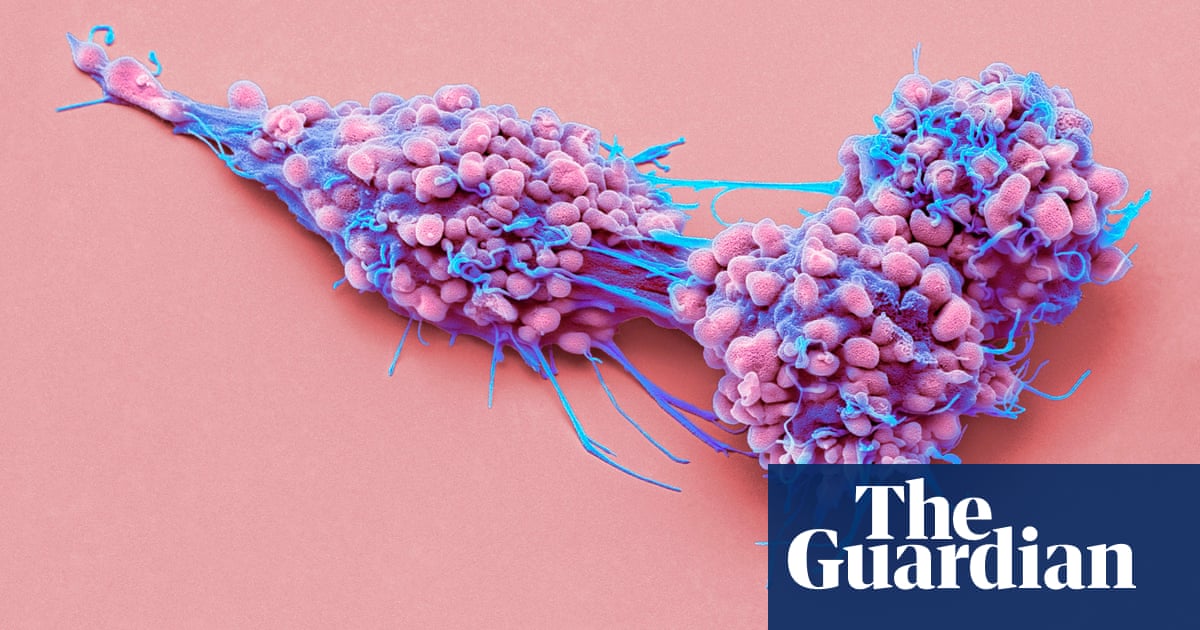
After being shown to shrink tumours in half the patients suffering from advanced ovarian cancer, a new drug combination could be beneficial for thousands of women.
A pair of drugs that work together to stop cancer cells from growing could be a new option for women suffering from ovarian cancer.
Experts stated that the combination's early trials showed remarkable results, which were presented at the European Society for Medical Oncology Congress. The trial was so successful, a phase 2 trial has already begun.
Researchers expressed delight with the outcome and hope that it will lead to significant advances in treatment, if replicated in larger trials.
Phase 1 was led by a team from the Institute of Cancer Research in London and Royal Marsden NHS Foundation Trust. It tested the drugs VS6766 and defactinib on patients with low-grade, serous ovarian carcinoma.
Experts say this type of cancer is more common in younger people. They also noted that only 13% of patients are able to respond to chemotherapy, and 14% to hormone therapy.
The trial results showed that 46% of the 24 patients surveyed saw their tumors shrink in response to treatment.
Patients with particular mutations saw even better outcomes, with 64% of patients who had KRAS-driven tumors shrinking after treatment. Researchers said that this could indicate that patients with specific mutations are more likely to receive the new treatment.
The trial participants, aged 31 to 75 years old, lived on average 23 months before their cancer progressed.
Professor Kristian Helin is the chief executive officer of ICR. He said that cancer's ability to develop resistance to treatment is a major challenge in cancer research. This research has provided a detailed understanding of cancer's growth and resistance, which can be used to develop a targeted treatment for patients with limited treatment options.
Dr Susana Banerjee also from The ICR, is a consultant medical oncologist, and research lead at The Royal Marsdens Gynaecology Unit. She said: These findings will represent a significant advancement in low-grade, serous ovarian carcinoma treatment.
Banerjee stated that the combination treatment was effective even for patients who had received an MEK inhibitor. This can shrink tumours but also tends to make them resistant to treatment.
She said: "I am thrilled that this drug combination worked so well in patients who are in immediate need of new treatments. This includes those who were previously treated with a MEK inhibitor." This could be the standard of care in women with low-grade, serous ovarian carcinoma.
Separately, at the European Society for Medical Oncology Congress, the trial of a new treatment for breast cancer was celebrated as groundbreaking. The results were said to indicate a strong trend toward improved overall survival.
AstraZeneca, a pharmaceutical company, stated that Enhertu showed a 72% decrease in the risk of death or progression in patients with metastatic HER2-positive breast cancer.
A trial involving approximately 500 patients from Asia, Europe and North America found a strong trend toward improved overall survival with Enhertu.
However, it was pointed out that the analysis is still in its infancy and therefore not statistically significant.
Dr Kotryna Temcinaite is senior research communications manager at Breast Cancer Now. She said that these are very promising results and that more research will be done to determine if this treatment can also give patients extra time and be present for the moments that really matter.
